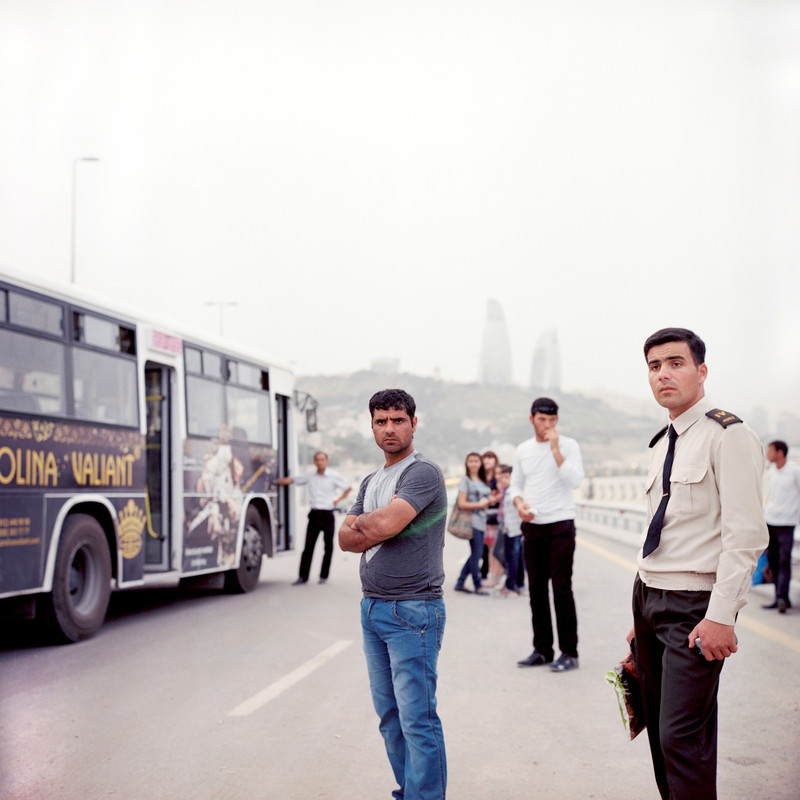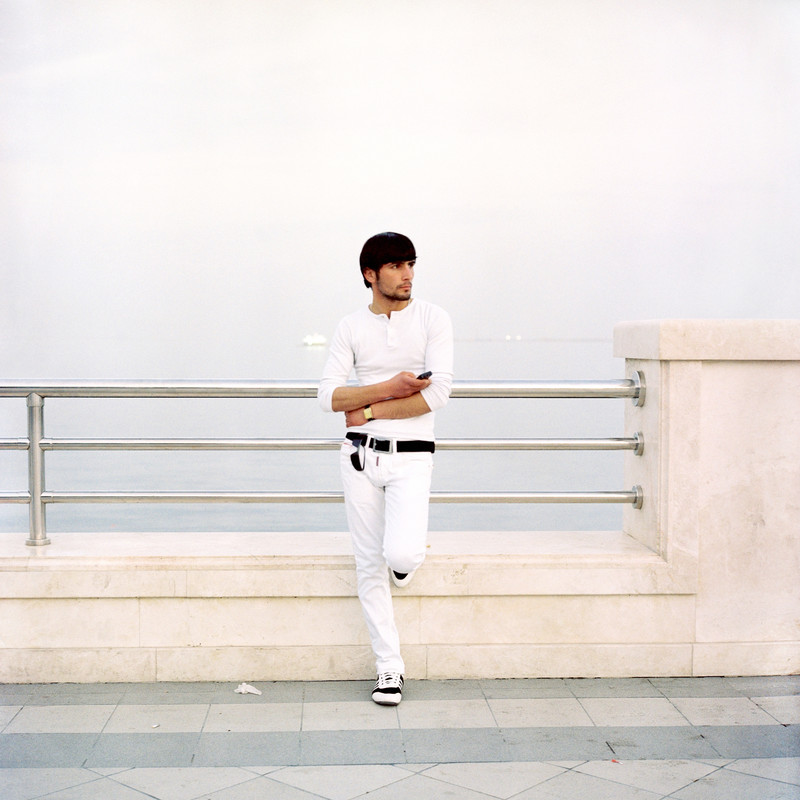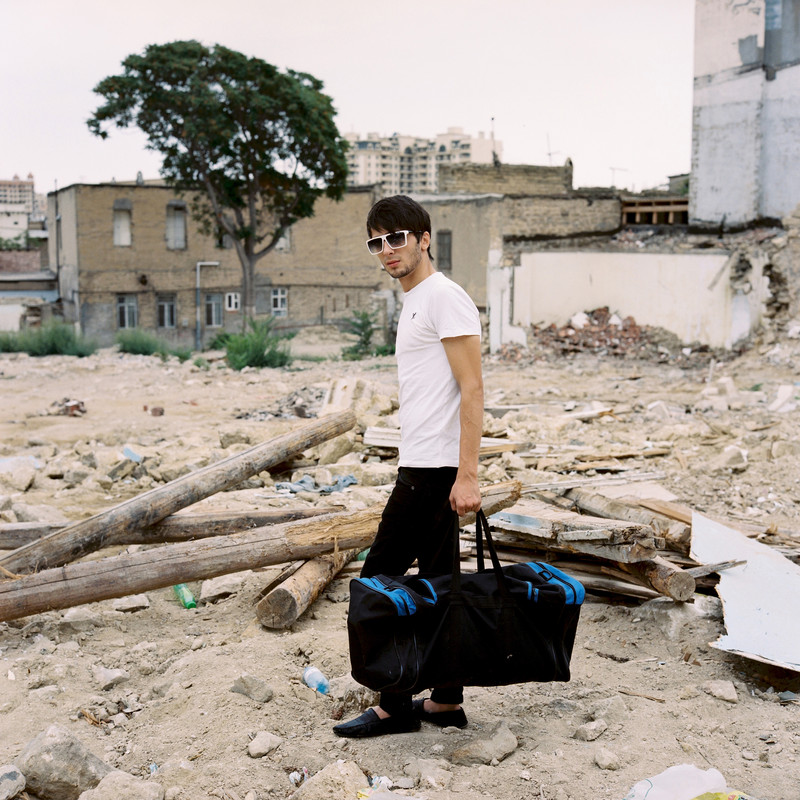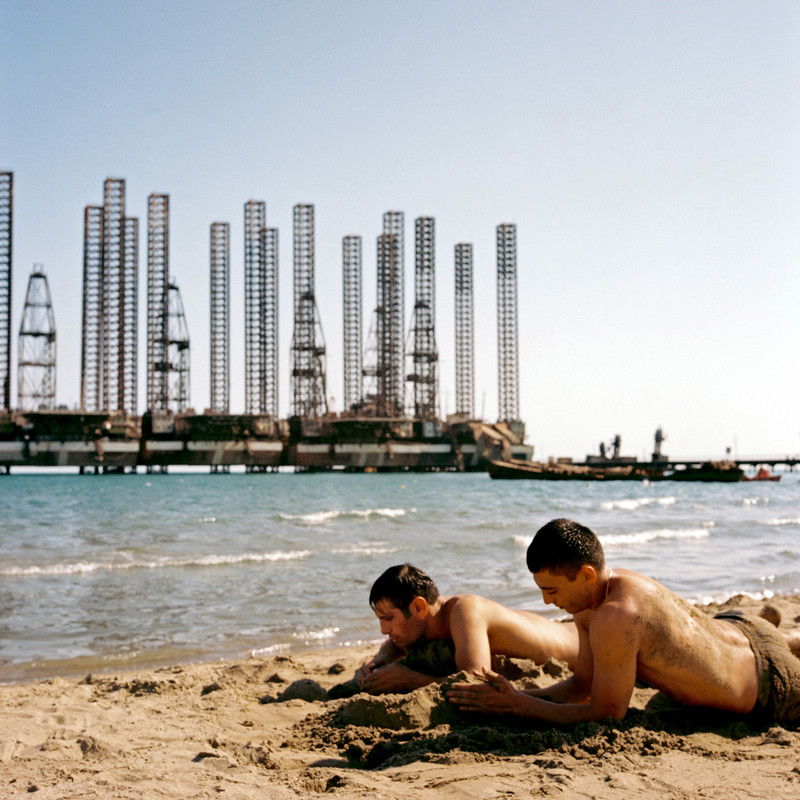After hosting the Eurovision in 2012 and the European Games in 2015 acts as a picture postcard of the country's newfound prosperity, but also of its contrasts. Rusting Ladas evoking a Soviet past, which ended with a bloody confrontation with Russian troops in 1990 and eventual independence in 1991, can be seen in the streets alongside expensive Mercedes sedans. On some streets in the historic old town, you might be as likely to find expensive Caspian caviar as a Döner Kebab stand, the latter being a reminder of the country's cultural links to Turkey.
Outside of Baku, however, the country, which has 9 millions people, is deeply impoverished. Forty percent of the country lives below the poverty line. Much of the natural resources wealth is going to clans and the country's elite living in the capital city of Baku, apparently with little trickle-down effect.
The country is ruled with an iron fist by President Ilham Aliyev, which has drawn persistent criticism from human rights groups like Amnesty International and Human Rights Watch for its repressive, anti-democratic policies.
Aliyev who became the country's leader after his father, Heydar Aliyev, essentially handed over power to him in 2003 before his death. Heydar Aliyev a self-styled father of the nation announced a £5.8 billion contract with a European oil consortium in 1994, which he trumpeted as the "deal of the century". This launched Azerbaijan's economy upwards, hauling the country headlong into the 21st century. Even today, Heydar Aliyev, who ruled from 1993 to 2003, is a regular presence in the capital city, with his face splashed on propaganda billboards across Baku.
Both Europe and the United States are often hushed in their criticism of Baku's deficiencies -- not least because they are partly dependent on Azerbaijan for their energy needs. The country is home to known energy reserves of around a billion barrels of oil and 1.3 trillion cubic meters of natural gas. Millions of barrels of Azerbaijani gas and oil are pumped to the West each year through a pipeline that runs from Baku to the Mediterranean Sea port of Ceyhan in Turkey.
But if until now Azerbaijan did not have to worry much about paying the bills – they do now. The slump in global oil prices has put a crimp in the country’s budget. In February, authorities felt compelled to devalue its currency the Manat, by a whopping 33.5 percent against the dollar and 30 percent against the euro.
The country’s 2015 budget, which envisaged a high level of spending on infrastructure projects such as the European Games, was drawn up under the assumption that the average oil price would be $90 per barrel. Now the oil price is hovering around $33 per barrel and previously envisioned levels of state spending do not seem sustainable, at least in the near term. As a result, the government must confront austerity.
In the absence of a sharp and sustained increase in the oil prices in the coming months, it is clear that the Azeri government will no longer be able to sustain a high level of economic growth. Living standards accordingly will decline.
If Azerbaijan is a major energy exporter it is also one of the most oil-dependent economies in Eurasia and has been hit hard by lower oil prices. If the current fiscal trends persist, regional stability is likely to come under growing threat.
click to view the complete set of images in the archive
























